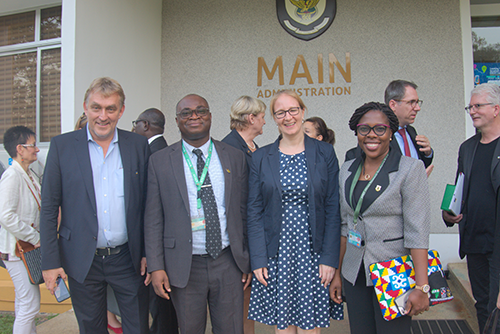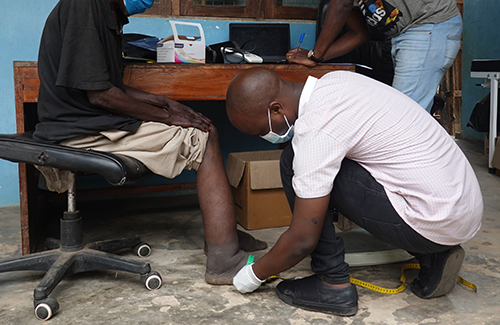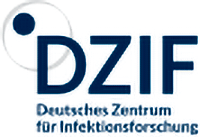Measures for the improvement of the morbidity management for patients with filarial lymphedema and hydroceles in Ghana
An estimated 67.88 million people are infected worldwide with the worm disease lymphatic filariasis, which belongs to the neglected tropical diseases (NTDs). Approx. 19.68 men developed hydroceles due to the disease and about 16.68 million people suffer from chronic lymphedema of the extremities. Until now, there is no recommended treatment worldwide, which could lead to a halt of progression or even to improvement of the edema. Previous clinical trials showed a positive effect by intensified hygiene measures, others (carried out by our group) by treatment with Doxycycline 200mg for 6 weeks. The current first choice for the treatment of hydroceles is surgery (hydrocelectomies), which are often carried out in organized Hydrocele Surgery Camps, i.e. activities where a team of surgeons with paramedics travels to a secondary or tertiary hospital to perform a larger series of operations during a relatively short time.

L-R, Prof. Achim Hoerauf, Director IMMIP, Prof. Alexander Debrah, Dean Faculty of Allied Sciences KNUST Ghana, Angelika Kellings, Clinical trials quality manager, Dr. Linda Batsa Debra, Lecturer KNUST Ghana. The group photo was taken during the 20 years anniversary of collaborations celebrations in Kumasi Ghana.
The efficacy of intensified hygiene training plus additional drug intake of Doxycycline for 6 weeks is currently tested in five parallel randomized, placebo-controlled, double-blind clinical trials. These trials should ideally lead to a change of relevant international guidelines – a WHO observer therefore take part at the annual meetings of the consortium of study PIs. Two out of these five trials are carried out in the scope of the TAKeOFF consortium (funded by BMBF, see below), which is co-coordinated by our group. The results of these trials could help millions of patients to mitigate their disease and therefore play an important role for the morbidity control of NTDs.
The distribution of the packages of measures first in the study area and later also in other areas in Ghana as well as in other endemic countries is a logistical challenge that needs an appropriate financial funding. Especially because the distribution is not done one time only but needs a sustainable supervision of the patients by an experienced team. Our plan is to let the research team carry out the measures and the supervision of the patients in the beginning of the project and then, after giving training workshops and building up the local capacity, will hand it over into local hands. This would simplify the process and also lead to sustainability of the project in the endemic area in Ghana. In order not to leave the men with hydrocele behind, we additionally plan to carry out hydrocele surgery camps within the scope of this new project.

Field team taking lymphodema measurement
Foto ©IMMIP-UKB
Principal Investigators
Prof. Dr. med. Achim Hörauf, University Hospital Bonn
Dr. med. Ute Klarmann-Schulz, University Hospital Bonn
Prof. Alexander Yaw Debrah, Kwame Nkrumah University of Science and Technology (KNUST) Kumasi, Ghana


